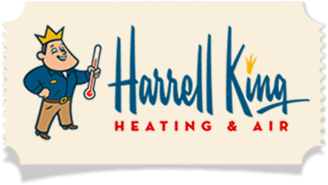You pay a lot of money each month to keep your Southwest Georgia home at a comfortable temperature. You take the necessary steps to ensure your HVAC system is in tiptop shape by changing air filters and investing in preventative maintenance. However, no amount of TLC for your heating and cooling system is going to lower your utility bill if your conditioned air is escaping due to inadequate insulation.
How Do I Know If I Need More Insulation?
First off, anyone who’s taken a basic science class knows that heat rises. This fact makes your attic the most important space in your home to insulate. Look around your attic. Is the insulation flush with the floor joists or slightly below it? If so, you need more insulation. If the insulation is above the joists, you have adequate insulation. Look everywhere to see if the insulation thickness is uniform. Sometimes there may be enough insulation in the middle, but not enough on the edges near the eaves.
Energy Star categorizes insulation by its R-value, which measures its ability to resist heat moving through it. The higher the R-value, the more heat resistant it is. The amount of insulation you need is rated by zones determined by climate regions. Southwest Georgia is in Zone 2, which suggests using R 30-60 in an uninsulated attic. If at least three to four inches of installation already exists, you should install R25 to R38 for optimal results. Ten to 14 inches of insulation that is uniformly installed throughout an attic is recommended.
What Kind of Insulation Should I Install?
There are two main kinds of attic insulation: loose fill and blanket-style (batt). It’s OK to install batt over loose fill or vice versa. The two types of insulation work well together and neither is more effective than the other.
Although insulating your attic with batt insulation is suitable for a DIY project, adding loose fill is a job for the pros since a special blower is necessary for the job. Additionally, realize that working in the attic can be a hot, dirty job. Besides purchasing the necessary insulation, you’ll also need a host of other tools and products such as reflective tape, caulk, expanding foam, aluminum flashing, and much more.
You should call a professional contractor if you notice any of the following conditions in your attic:
- Wet or moldy insulation (indicator of roof leaks)
- Moist exhaust from kitchens, bathrooms, or dryers (should be vented outdoors)
- Moldy or deteriorating rafters or floor joists
- Damaged wiring
- Unsealed recessed can lights
- Poor attic ventilation
What Other Steps Can I Take to Insulate My Home?
Other actions you can take to ensure a tight seal on your home include:
- Caulking and weather-stripping doors and windows
- Sealing air leaks around plumbing, ductwork, or wiring entering the home from the floor, ceiling, and soffits
- Replacing worn out door thresholds with new ones that use a pliable sealing gasket
- Keeping the fireplace flue damper closed after use
Call Harrell King for Insulation Installation
Insulating your Southwest Georgia home is a big and important job. Leave it to the professionals. The experts of Harrell King Heating & Air have the know-how to assess your home’s insulation needs and offer solutions to fit your budget. Contact us today for an appointment.








